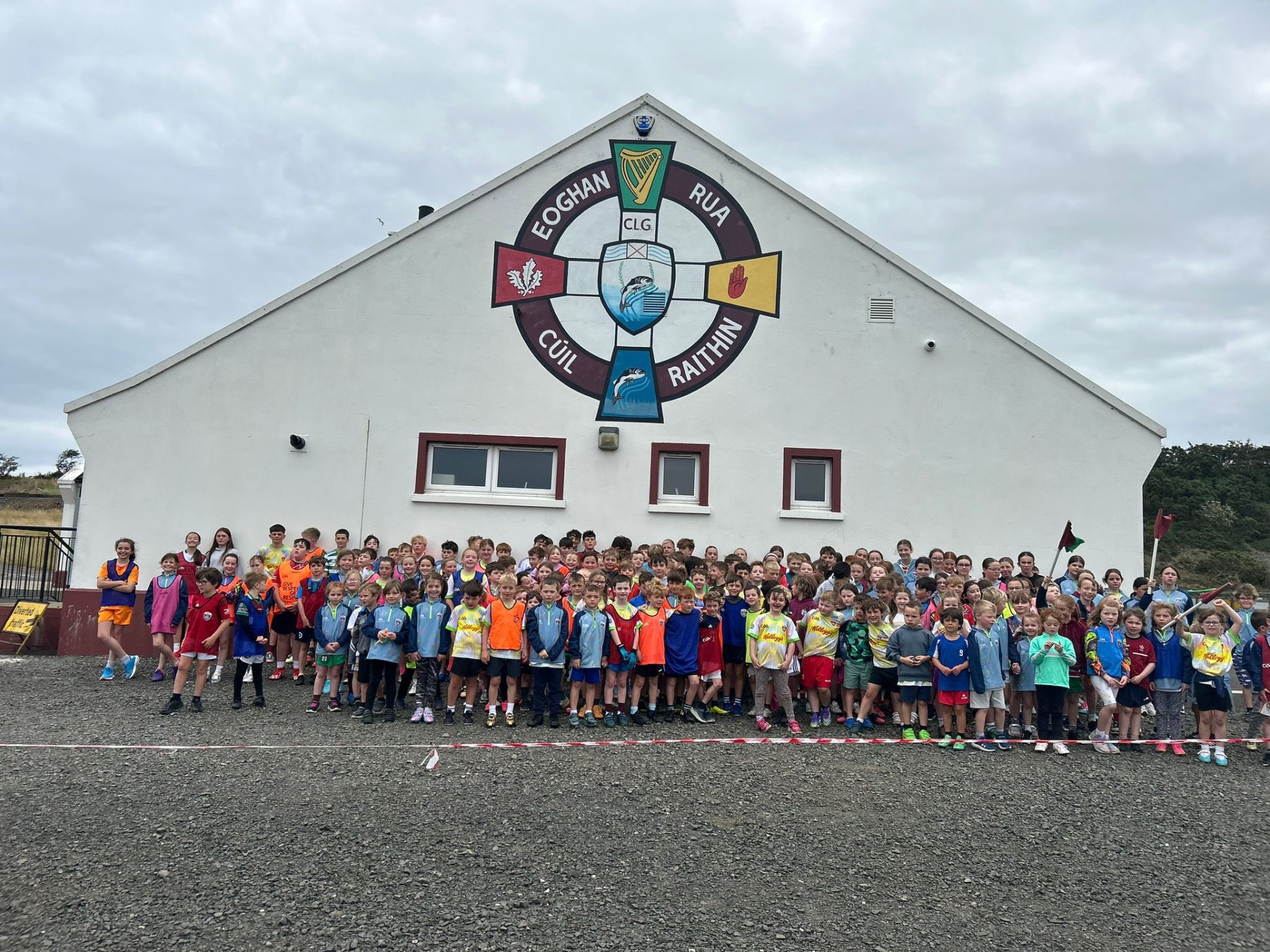
Eoghan Rua has long been a cornerstone of the local sporting community, competing at high levels in both codes.
This year marked the creation of three new hurling units in Derry, part of Jarlath Burns’ push to expand the game during his tenure as GAA president.
For the first time, children will have the chance to play in St Aidan’s Magilligan, St Mary’s Faughanvale, and St Malachy’s Castledawson.
Established under the new Hurling Development Committee, these units aim to give clubs a strong foundation to grow the game from the ground up. The long-term vision is that, over time, they will produce adult teams capable of competing in the Derry county championship and beyond.
While the move has been widely welcomed, it has also sparked discussion about where resources should be directed. Supporters of the initiative see it as a bold investment in the sport’s future, but others point out that some of Derry’s long-standing hurling clubs are already on the brink and require urgent attention.
One such club is Eoghan Rua of Coleraine — a proud dual club that, despite a history of success in both hurling and football, now finds itself in a precarious position.
“There’s a lot of good going on in Derry hurling at the moment, but all is not rosy in the garden. You just need to look at Coleraine, and hurling is just dying on its feet,” were the stark words of Johnny McGarvey, Derry senior hurling manager.
“I think it’s great that there are new clubs being set up, and I hope they are a huge success, but we also need to look at the clubs that we have at the moment and how we can strengthen them for their long-term future,” he said.
The concerns are well-founded. Eoghan Rua has long been a cornerstone of the local sporting community, competing at high levels in both codes. But in recent years, their hurling ranks have thinned dramatically, leaving the club scrambling to sustain senior competition.

Eoghan Rua held a well-attended Cul Camp this past week.
Club chairperson Stephen McKenna remains optimistic despite the steep challenges. He acknowledges that the current situation — particularly the difficulty in fielding a senior hurling side — is far from ideal, yet he insists there is still a way forward.
“It’s great to see these new clubs coming into the fray, but we need to look after the ones that are already there.”
“Jarlath Burns has stated that a key focus needs to be hurling, and it’s the oldest field sport in the world, and it deserves to be maintained and grown. It has to be a key focus of the GAA. It's great that this hurling development committee has been put in place. Football is very prevalent in Derry, hurling less so, so there needs to be an emphasis put on it.”
The Coleraine club’s main problem lies at the grassroots. In just a short period, their underage hurling base has eroded at an alarming rate.
“From minor up, we’ve seen a very sizeable drop-off rate. Running in or around 68 per cent in hurling. The attrition rate is very high.”
The implications of that figure are stark. Without a strong underage system, the pipeline to the senior team is broken, leaving the club to rely on an ageing core of players while struggling to bring through the next generation.
“I’d be worried for sure. We're going to put together a committee to focus on the situation around hurling. Our team consists of an older demographic, but we’ve got to go back to the drawing board.”
McKenna is under no illusions about the scale of the task ahead. The challenges faced by Eoghan Rua mirror those confronting many hurling clubs beyond Derry — the battle to make the sport relevant, exciting, and accessible to a generation of teenagers with more distractions and choices than ever before.
But he admits that significant work is needed—both within the club and across Ireland—to make hurling a more appealing option for today’s over-saturated teenagers.
“You have to put more in the top of the funnel to get more out the bottom, and there’ll be an attrition rate as you go through the ages. Our job is to keep girls and boys actively involved in sport as part of a healthy lifestyle; mentally and physically it is vital that we do, especially with all the digital distractions going on.”
For McKenna, the creation of the Hurling Development Committee is a step in the right direction — but he stresses that support for new clubs must be balanced with safeguarding the survival of those already in existence.
READ NEXT: Champions Slaughtneil off and running!
“Jarlath Burns made a commitment to looking at hurling and reinvigorating it, and it’s badly needed. This committee is a step in the right direction, but instead of focusing on new clubs, we need a focus on those that are existing just to ensure that they continue to survive and thrive.”
Subscribe or register today to discover more from DonegalLive.ie
Buy the e-paper of the Donegal Democrat, Donegal People's Press, Donegal Post and Inish Times here for instant access to Donegal's premier news titles.
Keep up with the latest news from Donegal with our daily newsletter featuring the most important stories of the day delivered to your inbox every evening at 5pm.